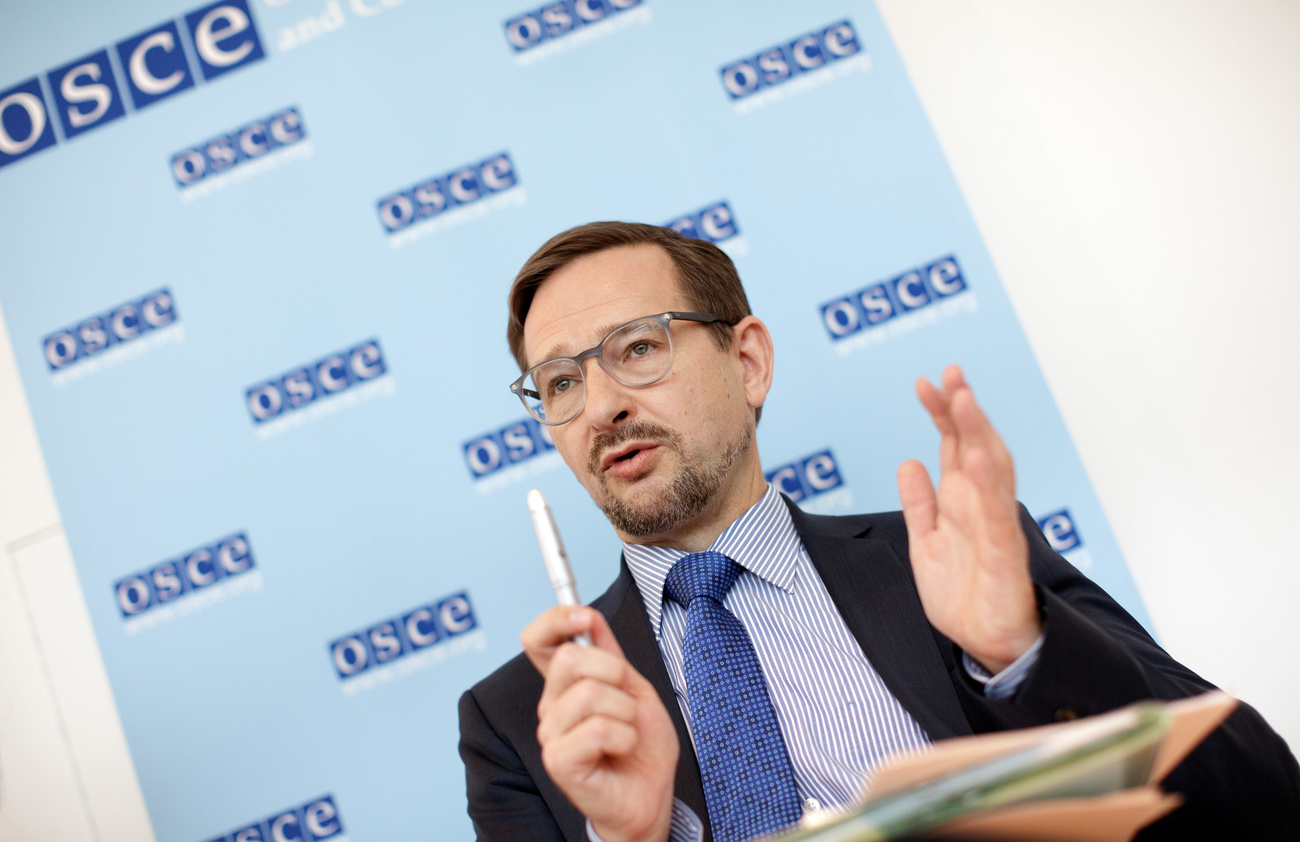
Departure of OSCE head a setback for dialogue and negotiation
Thomas Greminger's departure from the European security body shows that Swiss ideals of neutrality and humanitarianism are being challenged in the multilateral system, Daniel Warner argues.
What is the difference between politics and neutrality/humanitarianism? Political theorist Michael Walzer, in a famous 1973 article titled “Political Action: The Problem of Dirty Hands,” argued that getting one’s hands dirty in politics is inevitable. For Walzer, and many others, politicians and politics are fundamentally dirty. (We know that diplomats are jokingly referred to as honest people who are paid to lie for their country). Neutrality and humanitarianism, on the other hand, are supposed to be apolitical, hence clean and above the fray.
Switzerland’s neutrality has always been considered its strength. The small Alpine country punches above its weight in international affairs because it is seen as being independent. During the Cold War, this independence was especially appreciated by the major powers, as witnessed by the Reagan-Gorbachev summit in Geneva at the height of the conflict in 1985. Geneva, Switzerland was neutral territory.
Switzerland touts itself as an apolitical country. That is why it took so long for the Swiss to agree to join the United Nations. One should never forget that Switzerland was only the 190th member to join the UN, after 55% of the population voted in favor of joining in 2002. Previous popular votes had failed because the citizens worried about losing neutrality. Switzerland’s apolitical stature has also allowed it to act as “good offices” in situations like freeing American hostages in Iran. It is also why there is considerable reluctance for Switzerland to have an eventual non-permanent seat on the Security Council, a most political body.

But while Switzerland prides itself on its neutral independence and humanitarianism, there are moments when political infighting rears its ugly head beyond Swiss control. Thomas Greminger is currently paying that price. As secretary-general of the Organization for Security and Cooperation in Europe (OSCE), the former head of the Swiss Foreign Ministry’s human security division was supposed to be a shoo-in for re-election. He had done an outstanding job as the Swiss representative to the OSCE during the Swiss chairmanship in 2014 as well as secretary-general from 2017. No one has questioned Greminger’s competence.
What has been called into question is the political infighting within the organization. The 57 members are supposed to make decisions by consensus. And reaching consensus requires political acumen. Ambassador Greminger has walked that tightrope in negotiating between Moscow and Washington on such sensitive areas as Ukraine.
But what happens when the internal politics of the organization overwhelm consensus and competence? What happens when internal OSCE concerns outweigh merit? As we understand, the government of Azerbaijan strongly objected to the re-election of Harlem Désir, who, since 2017, has served as the OSCE Representative on Freedom of the Media and who has consistently criticized Azerbaijan’s government. And because they blocked his re-election, the French and some other countries decided to block Greminger’s re-election as well as that of three other department heads.
The situation may be temporary. Greminger could be re-elected after negotiations. But what is not temporary is the politicization of the major, inclusive European security organization. The history of the OSCE is one of continuing dialogue and mediation even during the Cold War. It has no permanent army; the OSCE functions by moral persuasion.
The non-re-election of Thomas Greminger is not only a setback for the OSCE, but it is also a major setback for dialogue and negotiation. Unfortunately, the departure of the highest-ranking Swiss in the international system also shows how the Swiss ideals of neutrality and humanitarianism are being challenged across the multilateral system. As with the coronavirus pandemic, one must continue to wash one’s hands these days.
The views expressed in this article are solely those of the author, and do not necessarily reflect the views of swissinfo.ch.
Opinion series
swissinfo.ch publishes op-ed articles by contributors writing on a wide range of topics – Swiss issues or those that impact Switzerland. The selection of articles presents a diversity of opinions designed to enrich the debate on the issues discussed. If you would like to submit an idea for an opinion piece, please e-mail english@swissinfo.ch

In compliance with the JTI standards
More: SWI swissinfo.ch certified by the Journalism Trust Initiative































You can find an overview of ongoing debates with our journalists here . Please join us!
If you want to start a conversation about a topic raised in this article or want to report factual errors, email us at english@swissinfo.ch.